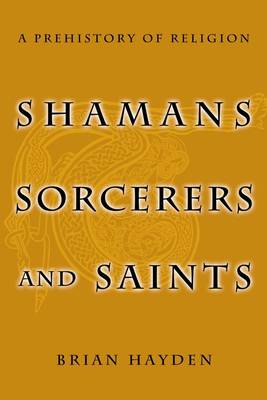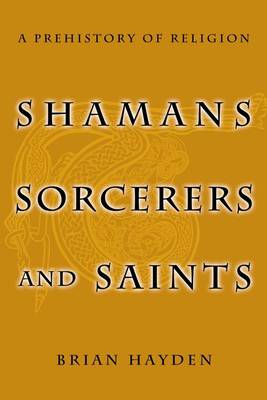
- Afhalen na 1 uur in een winkel met voorraad
- Gratis thuislevering in België vanaf € 30
- Ruim aanbod met 7 miljoen producten
- Afhalen na 1 uur in een winkel met voorraad
- Gratis thuislevering in België vanaf € 30
- Ruim aanbod met 7 miljoen producten
Zoeken
€ 79,45
+ 158 punten
Omschrijving
Historians of art or religion and mythologists, such as Joseph Campbell and Mircea Eliade, have written extensively on prehistoric religion, but no one before has offered a comprehensive and uniquely archaeological perspective on the subject. Hayden opens his book with an examination of the difference between traditional religions, which are passed on through generations orally or experientially, and more modern "book" religions, which are based on some form of scripture that describes supernatural beings and a moral code, such as Judaism, Christianity, and Islam. He attempts to answer the question of why religion developed at all, arguing that basic religious behaviors of the past and present have been shaped by our innate emotional makeup, specifically our ability to enter into ecstatic states through a variety of techniques and to create binding relationships with other people, institutions, or ideals associated with those states.
Specificaties
Betrokkenen
- Auteur(s):
- Uitgeverij:
Inhoud
- Aantal bladzijden:
- 468
- Taal:
- Engels
Eigenschappen
- Productcode (EAN):
- 9781588341686
- Verschijningsdatum:
- 17/12/2003
- Uitvoering:
- Hardcover
- Formaat:
- Genaaid
- Afmetingen:
- 185 mm x 259 mm
- Gewicht:
- 1156 g

Alleen bij Standaard Boekhandel
+ 158 punten op je klantenkaart van Standaard Boekhandel
Beoordelingen
We publiceren alleen reviews die voldoen aan de voorwaarden voor reviews. Bekijk onze voorwaarden voor reviews.











